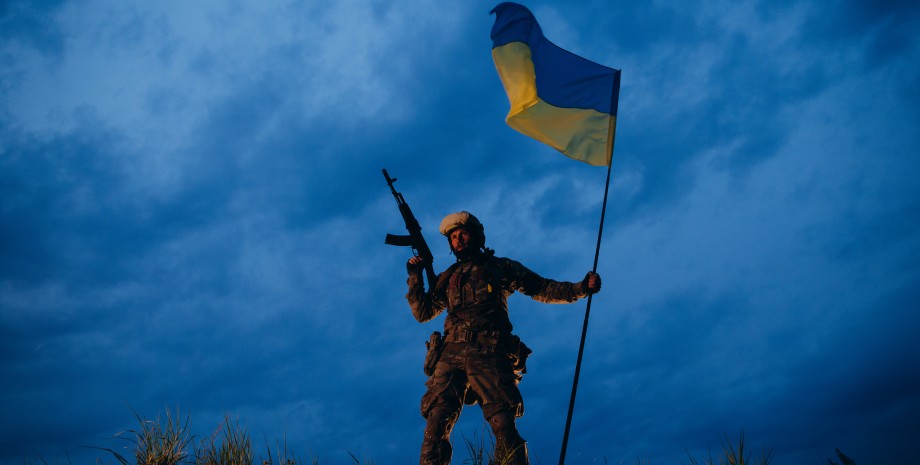
However, today, much of the countries are shifting the focus towards the Brix Union, and there is a disorder in Europe. Countries, such as Hungary, Slovakia, Portugal, Spain and even Germany, are increasingly refusing to supply heavy weapons to Ukraine. In the public plane, calls to sit at the negotiating table and end the war are increasingly being heard.
The most common was the wording: "The most important thing for us is to prevent the escalation of the conflict, in no case to prevent it from developing into a regional war. " However, it is rhetoric or real attempts to force Ukraine to lean to peace? To clarify the situation, we talked with the deputy of the regional council of Dnipropetrovsk region Dmitry Music. I do not see coercion to peace. I judge the actions. If we are given money to continue the war, then the war will continue.
I regard individual statements as a personal opinion of each of the parties on our situation. If they wanted to plan the negotiation table, they would immediately block the funding. Talks about the end of the war cannot be conducted against the background of constant strengthening of mobilization and delivery of more weapons, - said Dmitry Music Focus.
According to music, the financing of defense and the development of their own MIC only intensify, which clearly does not signal the readiness for peace. The opinions of the countries also diverge on the prospects of Ukraine's membership in NATO - one of the key points of the Victory Plan of Vladimir Zelensky. At the UN General Assembly, Bulgaria Foreign Minister stated that the security of the Alliance would be guaranteed only with Ukraine's accession to NATO.
At the same time, Turkish President emphasized that the US and other Alliance members do not seek to accept Ukraine in their ranks. However, the main question is what position the United States will take on the plan of Zelensky and who will implement it. Donald Trump has already stated that in the event of a victory in the elections, he would be contacted first with Zelensky and Putin to offer them to "negotiate". Kamala Harris will probably continue Joe Baiden's policy to support Ukraine.
This conflict is a complex and dynamic combination of two different forms of war. The first aspect is a traditional exhaustion war that unfolded along the front line of a thousand kilometers. In this format, Russia theoretically has an advantage due to a greater mobilization resource. The situation is also complicated by North Korea: about 12,000 soldiers from the DPRK should arrive in the Kursk region in the next weeks, as previously reported by President Zelensky.
In addition, the enemy has a significant advantage in artillery and drones. The European Union promised one million shells a year ago, but delays in the supply of weapons and political pressure on Russia raise questions about the real intentions of the West. Political technologist Alexander Mangush told focus about diplomatic transformation and a rapidly changing geopolitical environment. We see not so much fatigue as the loss of interest and annoyance associated with the war in Ukraine.
The event began to feel the financial consequences of support. Prices for fuel, electricity, gas, water, products in stores have increased at times. Ukraine's support is speculated by the "left" parties, the parties of Democrats. Various disadvantages of power and financial pits are written off to the war in Ukraine, - said Mangush's focus. According to him, the topic is actively warmed by the opposition that comes to power.
They criticize colleagues for being directed to Ukraine and not to solve internal problems. Roughly speaking, "we live worse through Ukraine. " And it has a response from the population. All this creates a negative image of Ukraine, which has become a "financial cargo" for Europeans, - added Alexander Mangush.
The deputy of the regional council of Dnipropetrovsk region Dmitry Music, for his part, believes that politicians should be more cautious, since this conflict is not a game, and in Ukraine people are killed. Those in power need to reduce a degree of applications a little, and those in the system have to understand that we have war and make it wrong. Less hippe and more help, "the music added the war, but in the West, calls for negotiations with Russia are increasingly being heard.
Rhetoric, which recently seemed only a diplomatic maneuver, can soon develop into specific steps. The main question for Ukraine - how to save the country, can If key allies begin to push Kiev on conditions that do not take into account its national interests? Wars, growth of internal problems and attempts to maintain relations with Russia can push the strategy for Ukraine Key solutions are the development of its own military-industrial complex.
Local arms and ammunition production will not only strengthen their defense capability, but also create new jobs that will support the economy in war. Joint projects with Poland and other Eastern European allies may partially compensate for the decline in deliveries by the Great Western powers. Diplomacy also comes to the fore. It is important for Ukraine to build a flexible relationship not only with the EU and the US, but also with other world players - such as Turkey, India and Latin America.
Flexibility in international politics will allow Kiev to save space for maneuver if traditional allies weaken support. The recent visit to Kiev is a prime example of the fact that dialogue can be adjusted with different countries, turning up support from both sides, as India continues to insist on Ukraine's territorial integrity. As a result, direct pressure on Ukraine in order to force it is not yet observed.










All rights reserved IN-Ukraine.info - 2022